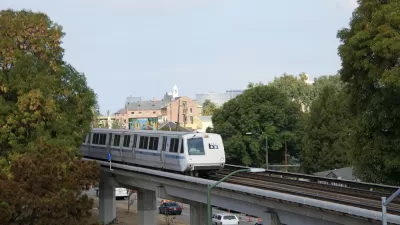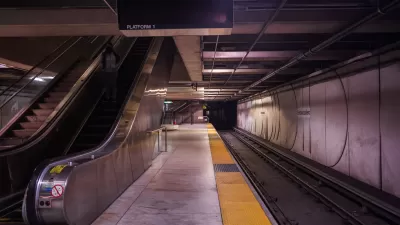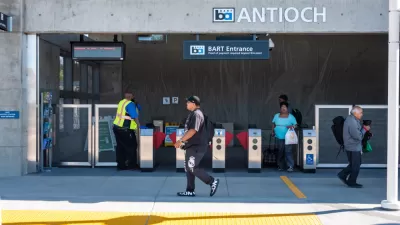In the hopes of letting some air into the congested rush hour commute, BART is considering a social-media focused program to entice riders onto trains at times other than the peak commute.

Michael Cabanatuan reported earlier this month on a new experiment underway at BART to relieve its crowded system: "using a mix of social media, gaming and cash as an incentive to get some BART riders to travel outside of the busiest parts of the commute."
A program known as BART Perks will be rolled out this spring with the goal of 'nudging passenger travel times' from the heart of the commute to slightly less-crowded times. Enticing just 1,250 people — about the capacity of a 10-car train — to commute a bit earlier or later, officials said, could significantly reduce crowding on trains and station platforms.
According to the article, ridership on BART has boomed along with the regional economy, outpacing the capacity of the system, especially at rush hour. The article also includes the details available at the time of what is intended as a six-month pilot test of the program.
Jack Morse also provides the local blogger take on the program in an article for SFist.
FULL STORY: BART riders get perks? There’s a catch

Planetizen Federal Action Tracker
A weekly monitor of how Trump’s orders and actions are impacting planners and planning in America.

Maui's Vacation Rental Debate Turns Ugly
Verbal attacks, misinformation campaigns and fistfights plague a high-stakes debate to convert thousands of vacation rentals into long-term housing.

San Francisco Suspends Traffic Calming Amidst Record Deaths
Citing “a challenging fiscal landscape,” the city will cease the program on the heels of 42 traffic deaths, including 24 pedestrians.

Amtrak Rolls Out New Orleans to Alabama “Mardi Gras” Train
The new service will operate morning and evening departures between Mobile and New Orleans.

The Subversive Car-Free Guide to Trump's Great American Road Trip
Car-free ways to access Chicagoland’s best tourist attractions.

San Antonio and Austin are Fusing Into one Massive Megaregion
The region spanning the two central Texas cities is growing fast, posing challenges for local infrastructure and water supplies.
Urban Design for Planners 1: Software Tools
This six-course series explores essential urban design concepts using open source software and equips planners with the tools they need to participate fully in the urban design process.
Planning for Universal Design
Learn the tools for implementing Universal Design in planning regulations.
Heyer Gruel & Associates PA
JM Goldson LLC
Custer County Colorado
City of Camden Redevelopment Agency
City of Astoria
Transportation Research & Education Center (TREC) at Portland State University
Jefferson Parish Government
Camden Redevelopment Agency
City of Claremont





























